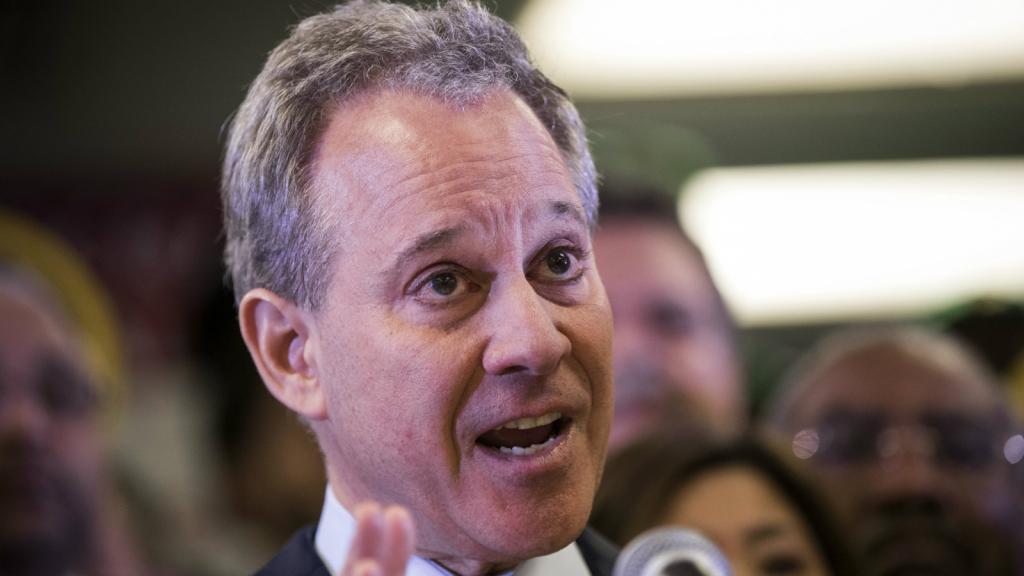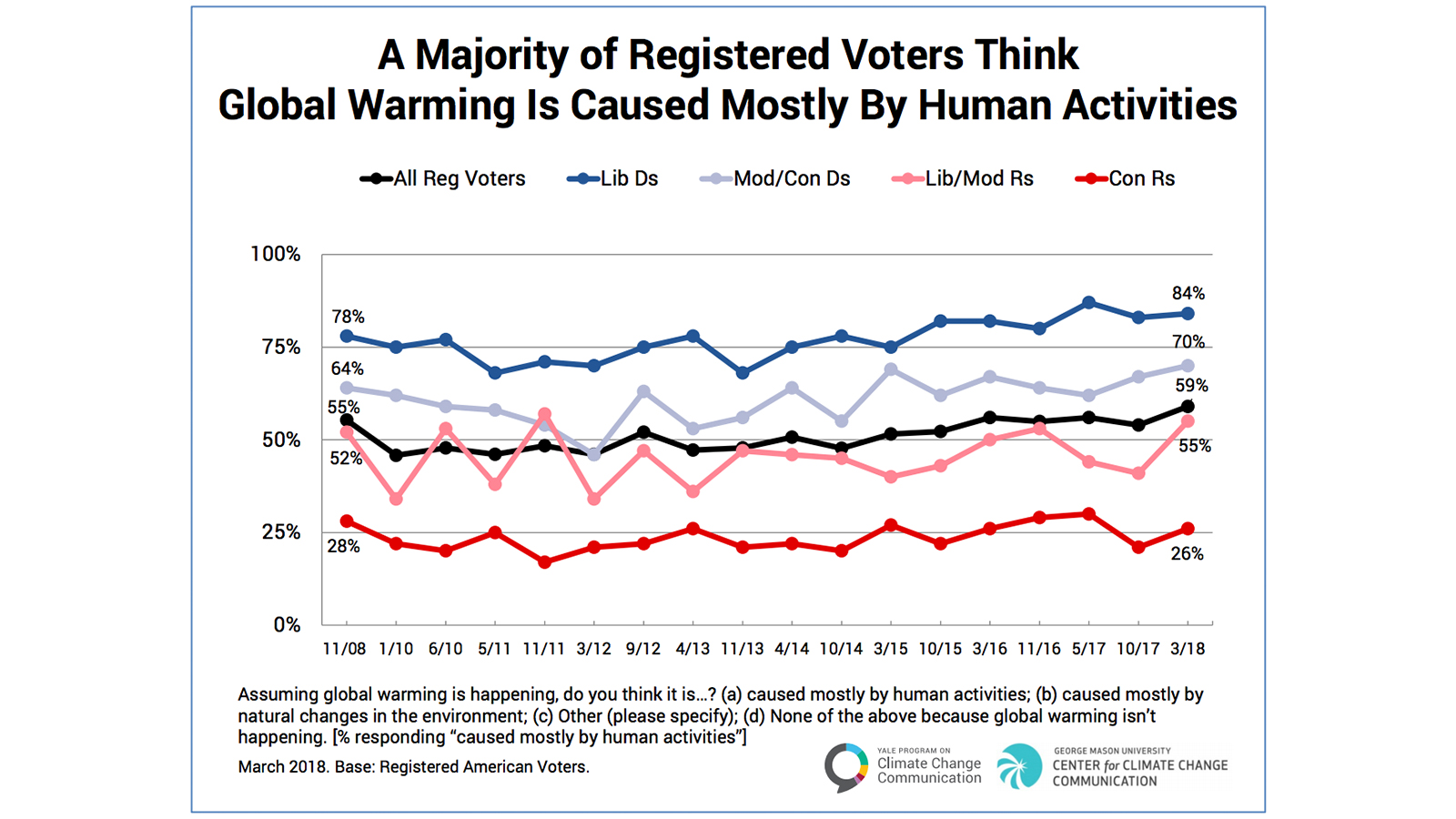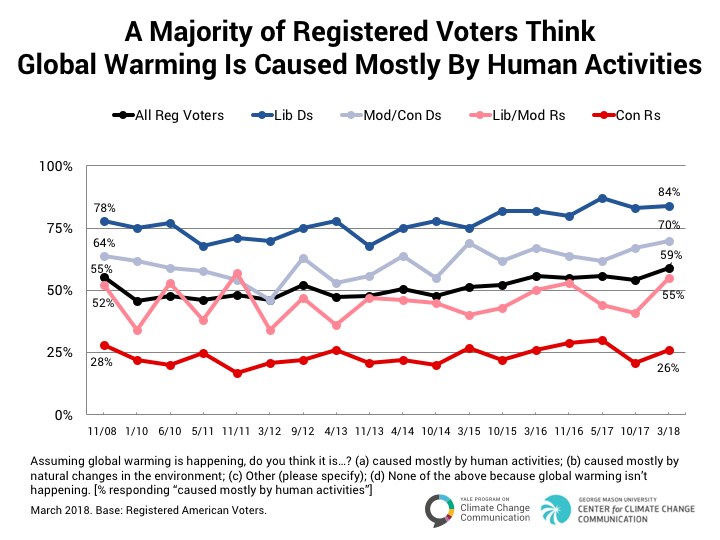In the year after the 2016 election, Republican opinion on climate change strayed further from the scientific consensus. In October — even after record-breaking hurricanes and wildfires linked to climate change hit the United States — conservative voters’ understanding of climate science had nearly hit a new low.
But the arc of climate awareness curves toward reality, it seems. The latest report from the Yale Program on Climate Change Communication and George Mason University finds that moderate Republican voters’ acceptance of human-caused warming has risen 14 points since last fall.
As to why Republican opinion is bouncing back now, the Yale program’s director Anthony Leiserowitz has an idea: Republican leaders have just been talking about climate change, and climate denial, less often lately.
Past research has shown that public opinion is strongly shaped by “elite cues” — basically, what high-profile politicians and celebrities say and do and how often the media covers it. Last year, the focus on President Donald Trump’s announcement about pulling the country from the Paris Agreement was one factor that could partly explain the sharp downturn in Republican opinion on climate change, Leiserowitz says.
The less Republican leaders talk about climate change, he says, the more their constituents’ opinion “rebounds to where Republicans would be normally if they weren’t hearing a bunch of climate denial from their leadership.”
Climate denial isn’t exactly news anymore. Everyday people are more focused on a bazillion other non-climate matters, like the Russia investigation, Scott Pruitt’s scandals, or Elon Musk dating Grimes. (It’s really weird!) And as the chart above shows, Republican opinion is now essentially where it was 10 years ago.
While Republican voters’ support for climate policies and clean energy is also on the rise, according to the report, climate change remains near the bottom of the list of issues they care about when they head to the voting booth.
Liberal Democrats, on the other hand, rank climate change as the fourth most important issue when voting for a congressional candidate. It falls behind health care, gun control, and more general environmental protection.
“I can’t emphasize strongly enough how important it is that this issue has become a top-tier issue in one of the major political parties in the country,” Leiserowitz says.
But by contrast, the Democratic Party’s official 2018 midterm platform buries just two passing mentions of climate change deep into the infrastructure section — and only as a benefit, not as a cause unto itself.
That’s not necessarily surprising, since the Democratic Party is trying to appeal to voters who weren’t already going to vote for them, not the far left. But Leiserowitz says it could also be a sign of Democratic leaders misreading their base.




